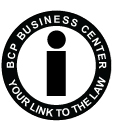Life on MARS: New Rule Protects Homeowners from Mortgage Relief Scams
Today the FTC announced the new Mortgage Assistance Relief Services (MARS) Rule, putting in place sweeping changes to protect homeowners from scams that have fallen on the heels of the mortgage crisis.
In the more than 30 law enforcement actions the FTC has brought to date, the typical M.O. is for operators to falsely claim that – for a fee – they’ll negotiate with the homeowner’s mortgage lender or servicer to get a loan modification, a short sale, or other relief from foreclosure. Many of these companies pretend to be affiliated with the government and government housing assistance programs.
A key provision of the new rule is a ban on advance fees. Companies can’t collect a penny until they’ve given customers a written offer from their lender or servicer that the customer decides is acceptable and a document from the lender or servicer describing the key changes to the mortgage that would result if the customer accepts the offer. Companies also must remind customers of their right to reject the offer without any charge.
In addition, the rule requires companies to disclose key facts designed to help homeowners get the information they need to make an informed decision. In their advertising and in communications directed at individual consumers – like telemarketing calls – companies must disclose:
- that they’re not associated with the government and their services have not been approved by the government or their lender;
- that the lender might not agree to change a customer's loan; and
- that customers could lose their home and damage their credit rating if they stop paying their mortgage.
Under the new rule, companies must explain that customers can stop doing business with them at any time and that they can accept or reject any offer the company gets from the lender or servicer. In addition, companies must disclose their fee and tell customers they don’t have to pay if they reject the offer. The rule also bars mortgage relief companies from advising customers to stop communicating with their lenders or servicers and bans false or misleading claims about mortgage relief services.
Attorneys, take note. You’re generally exempt from the rule if you meet three conditions: 1) you’re engaged in the practice of law; 2) you’re licensed in the state where the homeowner or the home is located; and 3) you’re complying with state laws and regulations governing attorney conduct. To be exempt from the advance fee ban, attorneys must meet a fourth requirement. You must place any fee you collect in a client trust account and abide by state laws and regulations covering those accounts.
The rule goes into effect on December 29, 2010, except for the advance fee ban, which kicks in on January 31, 2011.
Know someone who's struggling to pay the mortgage? The FTC's Money Matters site offers practical advice on evaluating the options, including tips on spotting a foreclosure rescue scam.


Do you know anything about organizations that say they can go after mortgage companies who have sold your note to other companies? a company is telling me then can sue the mortgage company and then buy the unsecured debt and rewrite a loan for my house that is no more than what the home is worth today-which is much less than the loan given the poor real estate market.
Hi, edrey. Of course, there's no way to know about the particular group that's approached you, but the FTC has issued an alert, Mass Joinder Lawsuits: A New Twist on Foreclosure Rescue Scams, warning consumers about a new wrinkle in the many foreclosure rescue scams targeting homeowners struggling to pay their bills. You can find the alert here: http://www.ftc.gov/bcp/edu/pubs/consumer/alerts/alt082.shtm
Our best advice is to thoroughly investigate any company that claims to offer a way out of debt -- for a fee. One preliminary step is to put the company name and the word "complaint" in a search engine and check out the results. Another resources is the FTC's Money Matters site, www.ftc.gov/moneymatters. It offers tips for people trying to make ends meet and a heads-up about spotting fraud.
Today I received a "robo call" from a group called RELIEF COUNCIL asking if I needed help with my mortgage. They said that Obama's stimulus program has given them ability to aid people who are.
I am on the national "do not call" list, and I don't have a mortgage.
How did they get my number?
Sounds like a scam to me.
Hi, Jello. I can't comment about the particular group that contacted you, but I can say that the FTC has been very active in suing companies that have used a phony government affiliation to make deceptive offers to people with mortgages. And the FTC has gone to court to stop robocallers that violate the law. We appreciate it when consumers take the time to let us know about things like this. You can file a complaint at https://www.ftccomplaintassistant.gov/.
Great Job now NONE OF US WILL GET a modification now. YOU NEED TO GO AFTER THE BANKS. We can't even hire an attorney because who is gonna work for free
Leave A Comment
Don't use this blog to report fraud or deceptive practices. To file a complaint with the Federal Trade Commission, please use the FTC Complaint Assistant.
PRIVACY ACT STATEMENT: It is your choice whether to submit a comment. If you do, you must create a user name, or we will not post your comment. The Federal Trade Commission Act and the Federal Information Security Management Act authorize this information collection for purposes of managing online comments. Comments and user names are part of our public records system, and user names are also part of our computer user records system. We may routinely use these records as described in our Privacy Act system notices. For more information on how we handle information that we collect, please read our privacy policy.